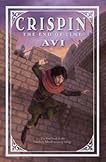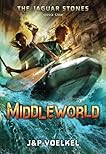SA 072409: Andrew Nikiforuk's Tar Sands: Dirty Oil and the Future of a Continent has won the $10,000 Rachel Carson Environment Book Award, presented by the Society of Environmental Journalists. Nikiforuk, the first Canadian to win the prize, will be honored during an awards ceremony in the Concourse Hotel and Governor’s Club in Madison, Wis., on October 7, the first day of SEJ’s 19th annual conference.
From Society of Environmental Journalists:
1st Place:
Andrew Nikiforuk. Tar Sands: Dirty Oil and the Future of a Continent
Andrew Nikiforuk paints an alarming picture in northern Alberta, Canada: International oil companies clear cut huge swaths of boreal forest, rake off the boggy soil, scoop up giant shovelfuls of oil sands with the largest machines on earth and use copious amounts of boiling water to separate tarry bitumen from the sand so it can be turned into petroleum for your car in Kansas. The toxic residue that comes off the sands is stored behind gigantic dikes that leak, and downstream people and fish are sick. In his authoritative new book “Tar Sands: Dirty Oil and the Future of a Continent,” Nikiforuk illustrates how an industry born in the 1960s has already industrialized an area larger than Florida. Nikiforuk shows that government agencies kowtow to industry, and that its models for monitoring environmental degradation are dubious. He found credible voices that question the sustainability of an explosively growing industry whose lifeblood is fresh water, an industry with holding ponds that rival, by volume, some of the largest dams on the globe. Until the 1970s, Chipewyan and Cree Indians lived off this rich land with no gas, electricity, telephone or running water. Today, Alberta is becoming the Saudi Arabia of the West. Foreign nationals easily outnumber locals, and the labor and housing shortages make Fort McMurray one of the most expensive places to live in the world. As oil reserves dwindle worldwide, this book sheds frightening new light on the future of energy.
Honorable Mention (two, in alphabetized order by author’s last name):
David Michaels. Doubt is Their Product: How Industry's Assault on Science Threatens Your Health
Some books carry weight for the specific stories they tell. Others stand out for the clarity they bring to many, many stories. Doubt Is Their Product is one of the latter — a clarifying analysis of the strategies corporations, politicians and their allies use to defend dangerous products against damning science and common sense. Michaels focuses particularly on the tobacco industry, where the strategy of sowing doubt about clear science was first perfected, and on environmental hazards including asbestos, lead and vinyl chloride. But the strategies of doubt and confusion he exposes are prevalent in every scientific “debate,” from the human role in climate change to the reality of evolution. Writing as an epidemiologist, and from his personal experience as an Energy Department regulator for environment, safety and health in the Clinton Administration, Michaels brings a rare level of depth and credibility to his analysis. More important, he also offers direct, practical approaches to combating the problem of manufactured doubt in legal and policy decisions. Doubt Is Their Product will be a revelatory experience for anyone interested in the environment or in corporate regulation, and an invaluable tool for environmental journalists seeking to penetrate behind the veils of secrecy and obfuscation that surround so many environmental stories.
Nancy A. Nichols. Lake Effect: Two Sisters and a Town's Toxic Legacy
One problem with environmental books is that they are often difficult to read. The language is technical, the list of toxics is long, and the warnings are impersonal. If you put down the book for the above reasons, the message is lost. Nancy Nichols makes the book very personal with her history of childhood along the polluted shores of Lake Michigan with her sister Sue. We care about the list of toxics in the water because she convinces us that it lies behind the cancer that killed her sister and eventually turned her own body against her. We care about these two women and what happened to them because the author makes them real, not cardboard cutouts for us to cluck over and then forget. “I cried for my sister. I cried because I didn’t think I could have children. I cried because I was afraid that if I did have children I would die of ovarian cancer when they were little or that I would pass on this horrible disease to them, or both.” That’s hardly impersonal, and it sure isn’t technical language. And yet, Nichols’ skills as a journalist allow her to investigate the history of pollution in the lake, particularly as it affects her home town of Waukegan, Illinois. She kicks butt and names names, in both industry and government. It’s a powerful story about the devastating effect of chemicals in our environment, told in a way that makes us all care.
2008 Rachel Carson Environment Book Award
1st Place:
Callum Roberts. The Unnatural History of the Sea
Honorable Mention: 2008 Rachel Carson Environment Book Award
Alan Weisman.The World Without Us
Honorable Mention: 2008 Rachel Carson Environment Book Award
Peter Heller. The Whale Warriors: The Battle at the Bottom of the World to Save the Planet's Largest Mammals
Subscribe to:
Post Comments (Atom)































No comments:
Post a Comment